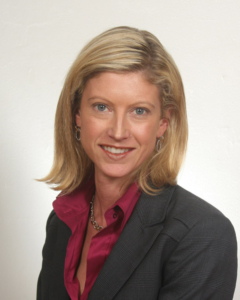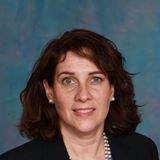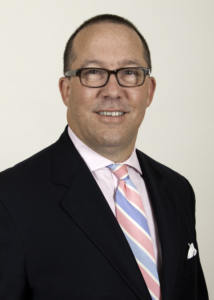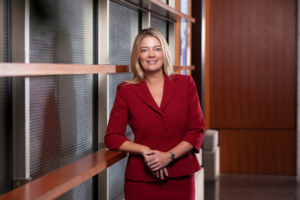 Paula Smith learned early on that while your career may take twists and turns, as hers has, there are fundamentals that will serve you well throughout. And for her, a key one is to cultivate relationships for the long term. “We are in a people business, whether we sit in product, distribution, finance or portfolio management. Networking doesn’t mean we have to spend hours going to lunch or drinks, but rather realizing that your contacts provide as much enrichment as any training, reports, seminars or meetings will.”
Paula Smith learned early on that while your career may take twists and turns, as hers has, there are fundamentals that will serve you well throughout. And for her, a key one is to cultivate relationships for the long term. “We are in a people business, whether we sit in product, distribution, finance or portfolio management. Networking doesn’t mean we have to spend hours going to lunch or drinks, but rather realizing that your contacts provide as much enrichment as any training, reports, seminars or meetings will.”
Smith’s first position was in human resources after a three-summer internship at Bank Julius Baer. While it wasn’t her intended starting point, it was one that proved serendipitous. She says now that her involvement with employee benefits, specifically the 401(k) program, allowed her to see first-hand how these plans worked, and the struggles for plan sponsors in getting people to join in the plan and invest the right way. Smith developed an instant liking to the details of retirement plans, specifically the importance of the investment options, how they were marketed and what they could do if used the right way.
That experience offered her insight into the importance of focusing on building skills. “It’s not about the individual job or role as much as the skills you can take away that can help you in your broader career.”This later included an MBA at Fordham University to help round out her business skills.
Soon after her stint at Julius Baer, Smith decided to move into the business side within financial services, and found a role developing and managing defined contribution/401(k) investment products and services at Sanford C. Bernstein, where she discovered her background with employee benefits was the ideal stepping stone.
From there, Smith has spent the last 20 plus years largely within product management for retirement and college savings plans at firms like J. & W. Seligman and Columbia Management – building businesses, teams and strategies, and trying to meet challenges as the financial services industry morphs over time.
“Though I didn’t have a very specific idea of where I wanted to be, I was lucky to identify a particular aspect of my first job that I loved and create a career out of it,” she said. “I still enjoy the ins and outs of retirement plans – investing, the changing rules and landscape and how, at the end of the day, helping people plan and save provides peace of mind and a positive future. This keeps things fresh and new.”
She says that she has tended toward roles where there is a building aspect, and that has provided a common thread of achievement over the course of her career. “I’m very proud of the growth of the various product lines I’ve worked on over the years. We move so quickly in our day-to-day lives, that it’s often hard to see what we’re trying to accomplish.” She says that an interesting emerging area is work they are doing with plan sponsors to help shape how they approach their DC plans.“Retirement is probably the single most important financial goal on anyone’s mind, and the work being done in our industry to help people prepare for that is so exciting.”
Lessons Learned Early
Smith had always assumed that if she worked hard, building a career would be easy, similar to how delivering on assignments in school earns you a high grade.
“But the truth is, while hard work is a very large part of it, very often it’s making sure people higher up know that you want to take on additional responsibilities,” she said, adding that it’s crucial for young women starting out to make sure that people know what they’re doing within the organization.
Early in her career she found that too often people make the mistake of silently getting the work done but rarely talking about it. “It was an important lesson, and I am cognizant of it to this day.”
Even so, she believes there is no substitute for putting in the time and effort and rolling up your sleeves to get things done, making sure that you have considered priorities to avoid devoting time and effort to activities that simply don’t matter that much in the end. “Always focus on what will help move the business forward or meet key goals.”
And, speaking of sleeves, those can have an impact on your career too. Smith advocates dressing for the job you want and not the one you have.While a bit cliché, someone offered that advice early on and it stuck.“As the culture becomes more casual, dressing well puts you in the right frame of mind and demonstrates your professionalism to others.”
Taking Smart Risks
In many cases, Smith has found that women tend to believe they have to be experts or have all the answers before they’re ready to take on a new challenge. But being thrown right into something where she didn’t necessarily have the background or expertise helped her throughout her career.
For example, when given the opportunity to launch what was a brand new product in the industry at the time – a 529 college savings program — there was no blueprint. Therefore it came with challenges, such as state involvement and unique product and regulatory requirements, which created some trepidation at first. “Sometimes it’s frightening, but in some ways, not having all the answers provides that continued learning that so many of us desperately crave,” Smith said.
Smith has found that these larger roles that involved new skills, such as leading a sales team, or being responsible for a very big budget, have provided some of the best learning moments of her career, as she found out that she enjoyed it and was successful at it.
Now, she says she would never wait for the expertise or having a large knowledge base before delving into new projects. “If you are open to learning and ask the right questions, and bring people to the table with their own knowledge, then taking on new challenge should be exciting rather than a cause for anxiety.”
In addition, success comes from being deliberate about letting people who are expert at a particular part of a project be that expert and lead the way. “When managing large business initiatives, you have to let other people play their critical role.”
Sponsors and Role Models Can Guide the Way
Smith says she has been fortunate to have had great sponsors throughout her career, both men and women. Interestingly, sometimes that sponsorship came from people who were otherwise viewed as difficult within the organization but nonetheless were helpful in shaping her path.
While she doesn’t have one specific professional role model, she has identified several who have offered ongoing career lessons – those who have a career trajectory she’d like to emulate, those who present with effectiveness, those who have a positive way of effecting change, and others who have been a touchstone in balancing her personal and professional life.
She advocates looking around deliberately to decide who has the traits and skills you would most like to have rather than choosing one person as a role model.
Family Travel
Right now, Smith says her time is divided between career and family. With a husband who is a stay-at-home dad to their two daughters, ages six and three, Smith knows it’s important for her to spend her time at home really focusing on them to recharge.
The family enjoys traveling together. “Having various trips planned throughout the year, even if it’s just for a weekend, or even not too far away, gives me something to focus on and to have my children focus on as time we’ll spend together. This goes a long way for all of us.”
By Cathie Ericson
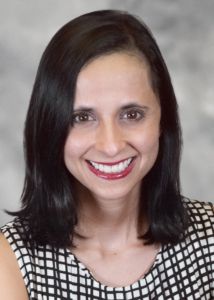 “When hard work and results aren’t recognized by others, which will sometimes happen, you have to advocate for yourself.”
“When hard work and results aren’t recognized by others, which will sometimes happen, you have to advocate for yourself.”
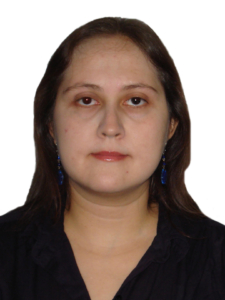
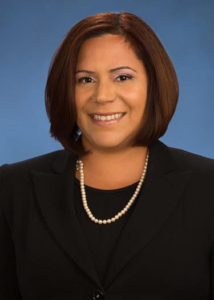
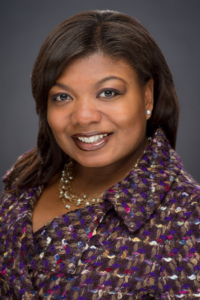
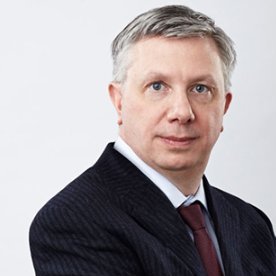 As content director for the Advisor and Financial Services Group at Rogers Publishing, Porado oversees three teams that produce trade publications read by financial industry professionals in Canada. He’s been with the company for 10 years, holding six different positions. Prior to joining Rogers, Porado worked for a variety of publications in the United States in the finance, architecture and political industries and also covered general news at United Press.
As content director for the Advisor and Financial Services Group at Rogers Publishing, Porado oversees three teams that produce trade publications read by financial industry professionals in Canada. He’s been with the company for 10 years, holding six different positions. Prior to joining Rogers, Porado worked for a variety of publications in the United States in the finance, architecture and political industries and also covered general news at United Press.